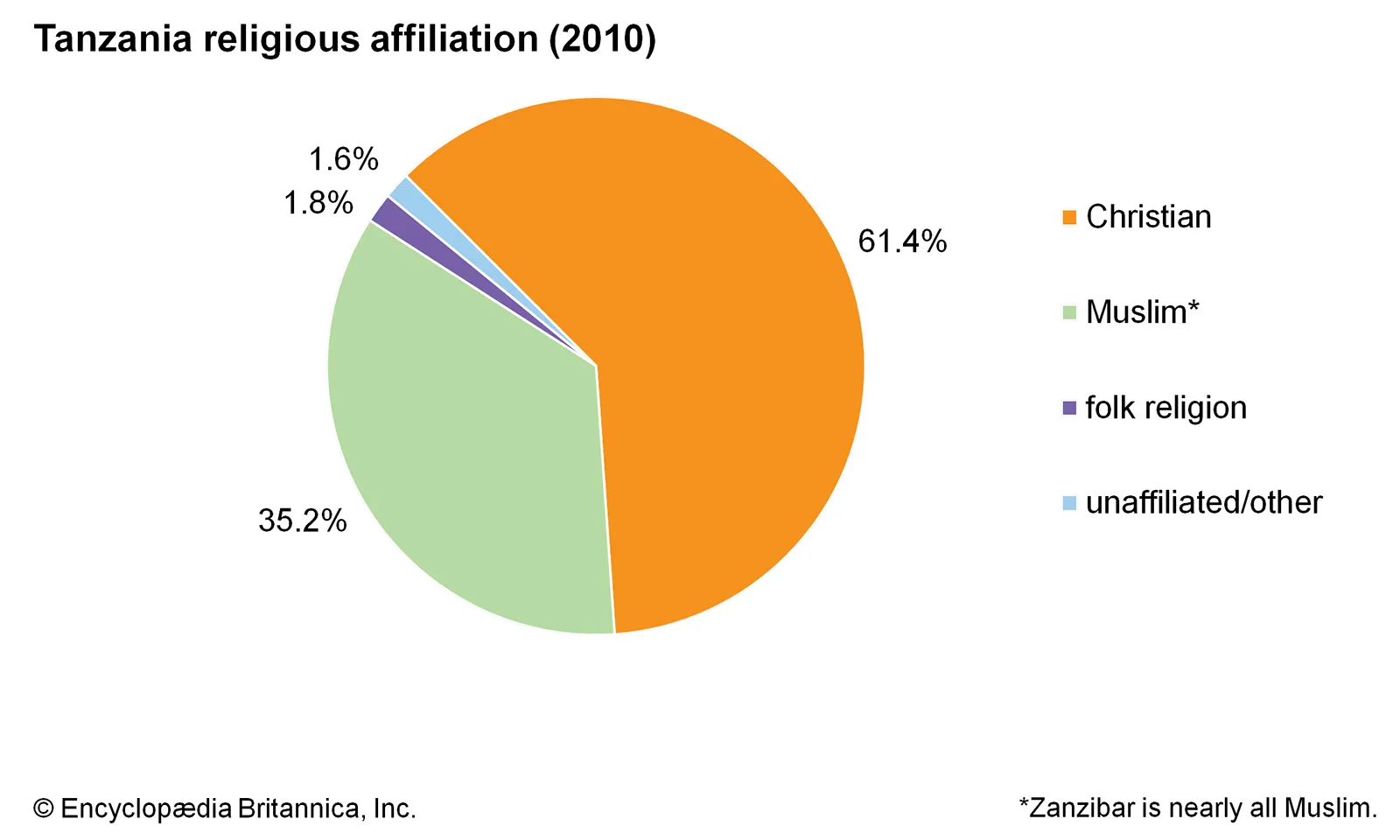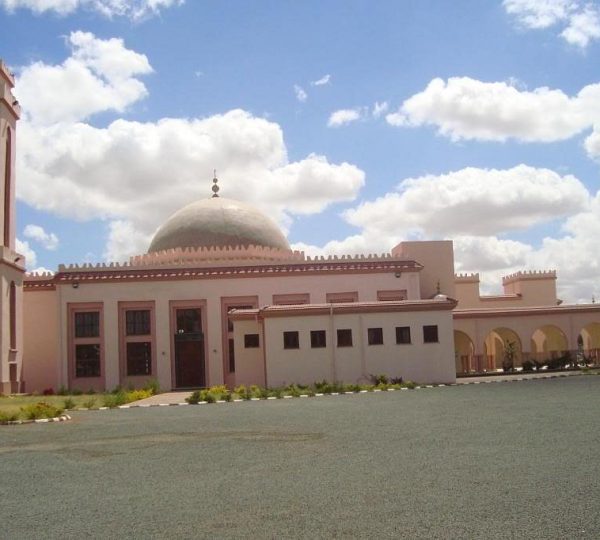An Overview of Religion in Tanzania: Christianity, Islam, Witchcraft, and More

An Overview of Religion in Tanzania: Christianity, Islam, Witchcraft, and More
Introduction to Tanzania’s Religious Landscape
Tanzania is one of Africa’s most culturally, religiously, and ethnically diverse nations. It hosts a variety of religious groups, including major religions like Christianity and Islam, as well as local beliefs and smaller faith communities.
Freedom of Religion in Tanzania
Tanzania is a secular state, which means that the constitution guarantees freedom of conscience and religious belief, ensuring that there is no discrimination based on religion. The country is known for its multiculturalism, with around 150 different ethnic groups, each possessing unique cultural and religious practices.
Surveys indicate that nearly two-thirds of the population identifies as Christian, while Islam is the second-largest religion, particularly dominant in the Zanzibar archipelago. Other religious groups and traditional beliefs also play a significant role in the country’s spiritual landscape. Interestingly, many Tanzanians blend their religious beliefs with elements of magic, witchcraft, and rituals.
Major Religions in Tanzania
Christianity
Christianity is the predominant religion in Tanzania, with approximately 63% of the population identifying as Christians. The majority are Catholics, but there are also significant communities of Lutherans, Anglicans, Orthodox Christians, and other denominations.

Christianity was introduced to Tanzania in the late 15th century by Augustinian monks who accompanied Portuguese explorer Vasco da Gama. Although Catholic missions initially spread into the interior, their influence waned during the Omani Arab rule. Catholic missionaries returned in the late 19th century, leading to a gradual adoption of Christianity among Tanzanians. By the 20th century, the Christian community had expanded significantly, with the first African cardinal, Laurean Rugambwa, emerging in the 1960s.
Islam
Islam is the second-largest religion in Tanzania, with about 34% of the population identifying as Muslim. The religion primarily spread through trade along the East African coast rather than through conquests, as seen in West Africa. Traders intermarried with local populations, gradually introducing their culture and religion.

The Kizimkazi Mosque, located in Dimbani, is one of the oldest mosques in Tanzania, with a Kufic inscription dating back to 1107. Islam gained prominence on the mainland during the Omani Arab rule in the mid-19th century, and the National Muslim Council of Tanzania was established in 1969 to oversee Muslim affairs.
The majority of Muslims in Tanzania are Sunnis, but there are also communities of Ismailis, Twelver Shiites, and Ibadis, as well as members of the Ahmadiyya Muslim community, which was introduced to the region by Indian activist Mirza Ghulam Ahmad in the early 19th century.
Religion in Zanzibar
Zanzibar, a semi-autonomous region of Tanzania, has a predominantly Muslim population, with 99% of its residents identifying as Muslim according to a 2020 Pew Research Center report. Most of the island’s Muslims are Sunnis, with some Shiite groups present, primarily of Asian descent.
Zanzibar operates under its own president and judicial system, allowing Muslims to access Sharia courts for matters such as divorce and inheritance. Tourists should be aware of certain restrictions during Ramadan, such as the closure of restaurants and stores, as well as general dress codes that prohibit revealing clothing in public.
Other Religious Groups in Tanzania
In addition to Christianity and Islam, Tanzania is home to smaller religious communities, including Buddhists, Jews, Hindus, Sikhs, Bahá’ís, and those with mixed beliefs, making up about 1.6% of the population.
Traditional Beliefs and Witchcraft
Traditional African beliefs hold a significant place in Tanzania’s religious landscape. The country is home to around 150 ethnic groups, each with its own customs and rituals. Common elements of these beliefs include the recognition of a supreme being, spirits inhabiting natural objects, and ancestor worship.

For example, the Chaga people, who live around Mount Kilimanjaro, primarily practice Christianity but also maintain elements of their traditional beliefs, including ancestor worship and reverence for the sun god Ruwa. Similarly, the Sukuma people honor their ancestors through prayers and offerings, while some Maasai tribe members adhere to traditional beliefs about nature and the divine.
Magic and witchcraft coexist with mainstream religions in Tanzania. Many people, regardless of their religious affiliation, may consult shamans or fortune-tellers for guidance in times of trouble. A Pew Research Center study found that 60% of Tanzanians believe that offerings to ancestors or spirits can provide protection.
However, some groups, like the Hadza tribe, do not practice any religion or witchcraft, believing instead in their own cosmology and legends. They view other tribes as possessing magical abilities, which can lead to conflicts.
Religious Holidays in Tanzania
Tanzania’s rich ethnic and religious diversity means that various religious holidays are celebrated alongside national holidays. Christians celebrate Easter, while Muslims observe Eid al-Fitr. Other religious observances include the birthday of the Prophet Muhammad (Maulid), Hindu festivals like Vaisakhi and Durga Puja, and the Buddhist ceremony Katina.
Frequently Asked Questions
Is Tanzania an Arab country?
While Tanzania is not classified as an Arab country, its coastal regions, particularly Zanzibar and Pemba, exhibit significant Arab and Persian influences due to historical connections.
Is Christianity legal in Tanzania?
Yes, Christianity is legal and is the predominant religion in Tanzania, with about 63% of the population identifying as Christian.
What is the main religion in Tanzania?
Christianity is the main religion in Tanzania, with approximately 63% of the population identifying as Christian, while the coastal regions and Zanzibar have predominantly Muslim populations.




